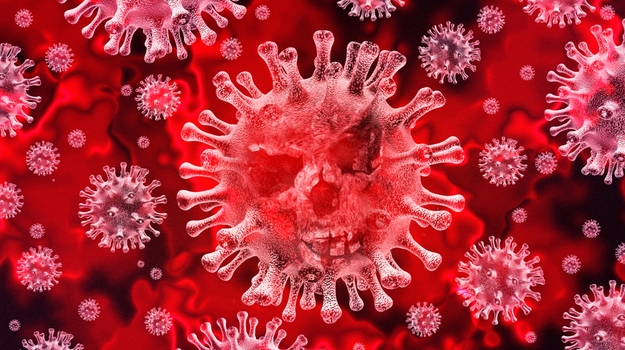Study: Cannabis plant extract successfully downregulated Covid-19 inflammation levels
A team of Canadian researchers from the University of Lethbridge and Pathway Rx Inc. – am Alberta-based pharmaceutical research company – claim that they have successfully discovered how to ease inflammation levels in patients with COVID-19. Cannabis played a major role in their study, which saw the group target receptors that contribute to the proliferation of coronavirus throughout the body.
In order to come to their conclusion, the team monitored levels of a SARS-CoV-2 host cell receptor angiotensin-converting enzyme 2, better known as “ACE2”. After artificial 3D human models were administered with 23 extracts developed by scientists at Lethbridge, it was confirmed that 13 of them successfully downregulated ACE2 expression.
In addition to testing the efficacy of extracts on airway, oral and intestinal tissues, the Lethbridge team were responsible for creating hundreds of new C. Sativa cultivars. Their results, which were published in the journal Aging, confirmed that they witnessed down-regulation of ACE2 gene expression by various tested extracts of new C. Sativa cultivars. The team described it as “a novel and crucial finding.”
“While our most effective extracts require further large-scale validation, our study is important for future analyses of the effects of medical cannabis on COVID-19,” wrote lead study author Olga Kovalchuk and her colleagues. “The down-regulation of ACE2 levels in gateway tissues may thus be a plausible strategy for decreasing disease susceptibility.”
What is ACE2?
This enzyme molecule binds the inside of a cell to the outside by fusing via the cell membrane. ACE2 should not be confused with “ACE” — a different enzyme that causes blood vessels to constrict when it converts angiotensin I into angiotensin II. When blood vessels tighten due to the proliferation of ACE, blood pressure can drastically increase.
Scientists have acknowledged the power of ACE2 as a molecule that can counteract the blood-constricting effects of ACE. With ACE2 in the picture, blood vessels can be successfully dilated and blood pressure effectively lowered.
S1 proteins – the noticeable spikes that encapsulate the COVID-19 virus’ surface – bind to the ACE2 molecule on our cells. In fact, the binding capacity for SARS-CoV-2 and ACE2 is 10-20 times more than the original Sars virus. What this means is that the Sars spike protein may struggle to infiltrate cells thanks to ACE2’s protective capabilities.
ACE2 molecule could worsen COVID-19 patient health
Although ACE2 has demonstrated its potential at blocking the early stages of infection by binding with the spike protein, not to mention reducing injury to the lung tissue, other areas of research suggest that the molecule could do more harm than good.
For example, a mouse study revealed that the binding of ACE2 and the COVID-19 Sars spike protein actually contributed to lung damage. Nonetheless, based on the journal Aging study and an ever-growing field of evidence, there is good reason to believe that ACE2 can downregulate COVID-19 inflammation levels in the lungs.








